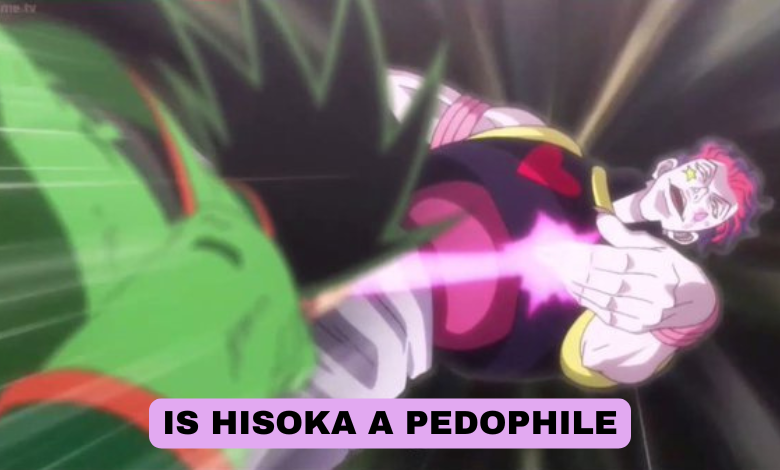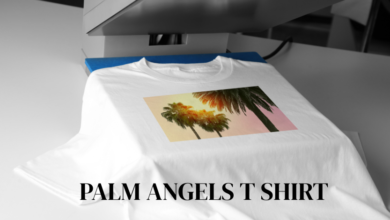Is Hisoka a Pedophile? A Balanced Look at the Debate

Over the years, among Hunter × Hunter fans, a question keeps popping up in memes, forums, and debates: Is Hisoka a pedophile? Some point to scenes that feel creepy, others defend him as just obsessed with power. The topic can ignite strong opinions—and that’s understandable, because it touches on real life sexual taboos and ethics.
In this article, I want to walk through this issue carefully. I’ll look at definitions, textual evidence, counterarguments, psychological perspectives, and fan views. I won’t pretend to have absolute certainty, but I’ll aim for clarity and responsible interpretation. My goal is not to accuse or judge, but to explore whether labeling Hisoka a pedophile is fair or oversimplifying.
Let’s begin by clarifying what “pedophile” really means, especially when applied to fictional characters.
What Is Pedophilia? Legal & Clinical Definition
Before we talk about any character, we need to be precise about terms.
Pedophilia in clinical / psychiatric usage refers to a sustained sexual attraction to prepubescent children (typically age 13 or younger, though definitions vary) where the individual is at least 16 or 5+ years older than the child. It’s about sexual preference, not just a single act. This is a serious diagnosis used in medical / forensic contexts.
Often people confuse other categories:
-
Hebephilia – attraction to early adolescents (pubescent minors).
-
Ephebophilia – attraction to older adolescents.
-
Sexual interest in minors more broadly may include attraction to teenage characters, which is legally and morally distinct in many jurisdictions.
In fiction, applying these labels gets murky. A character might exhibit suggestive or unsettling behavior, but that doesn’t mean they meet the clinical standard. Writers might employ metaphor, symbolism, or shock value, not literal sexual desire.
So when someone asks “Is Hisoka a pedophile?”, a few disclaimers:
-
Fictional characters don’t always map cleanly onto clinical definitions.
-
Labeling with “pedophile” is serious and loaded; we should reserve it for evidence that aligns with definition.
-
Interpretation depends on what scene, panel, or moment you read—and how much you presume authorial intent.
With that in mind, let’s look at who Hisoka is and what the debates are.
Read Also: Does don guffey of atlanta have a daughter named michelle
Who Is Hisoka in Hunter × Hunter?
If you’re not deeply familiar with Hunter × Hunter, here’s a short refresher (you can skip this if you already know).
Hisoka Morow is a flamboyant, cunning, and often sadistic character. He appears early in the series and plays multiple roles: antagonist, rival, unpredictably helpful ally. Hisoka is obsessed with fighting strong opponents. He doesn’t care (much) about morality—he cares about the thrill.
A key part of his character is that he is drawn not to age but to potential. He often speaks of “ripeness”—that someone isn’t yet ready, but could become a worthy adversary. He sees youth not primarily as children, but as latent strength waiting to bloom.
Hisoka interacts with younger characters like Gon and Killua early on. That’s one reason why the question “Is he a pedophile?” arises: because some interactions feel disquieting. But we need to inspect those scenes closely.
Scenes & Behavior That Fuel the “Pedo” Debate
Let’s examine the moments fans often cite as evidence:
-
The “butt glance” in Greed Island
Some viewers notice that in one scene Hisoka stares at Gon and Killua’s rear ends as they walk ahead, a moment that feels voyeuristic. That moment is frequently brought up as “evidence” of sexual interest. -
Implied sexual visuals / reactions
In fan discussions, people say he “popped a boner” when certain scenes occurred, or that in one fight his reaction is drawn in a suggestive way. Some also claim he asked if he could “do” Gon in a weird gesture (though this is from fan interpretation, not canonical material). -
Interest in Gon’s strength / potential
Hisoka repeatedly says Gon is not ripe yet. He wants Gon to grow stronger before fighting him. Some fans interpret this as an erotic metaphor or as sexual tension. -
Fan claims in forums / discussions
Multiple fan threads present strong opinions, e.g. “Yes, he’s literally a pedophile” or “He’s perverted, but not pedophilic by definition.”
The challenge with using these scenes as conclusive evidence is that much of it is implied or open to interpretation. Suggestive framing in art does not always equal sexual interest.
Also, the show often uses metaphor, psychological angles, and symbolic visuals. A stare or lingering camera does not always equate to a literal sexual act.
Some scenes are more ambiguous, and others lean toward pure power dynamics with no sexual subtext. It’s also relevant that many of those interpretations come from fans, not from explicit statements in the official manga or by the author.
Arguments Against Calling Hisoka a Pedophile
Even though some fans argue strongly that Hisoka is a pedophile, there are counterarguments worth considering:
-
Not exclusively attracted to children
If someone is attracted to children and adults, does that make them a pedophile? Clinically, the term often means a primary attraction to children. Some fans argue Hisoka’s desire is more about power, not age. -
Power fetish / attraction to potential
Many analyses describe Hisoka’s “sexual energy” as directed at potential strength rather than youth per se. He wants to test, to provoke, to play with people who might become formidable. Age is secondary. -
Metaphor, art, and exaggeration
In manga and anime, visual exaggeration and erotic framing are tools. A scene drawn seductively may heighten tension or unease, not literally depict sexual intent. Fans warn about conflating artistic style with character motive. -
Lack of canonical confirmation
To my knowledge, neither in the manga nor in interviews has the author or official sources explicitly labeled Hisoka a pedophile. Without that, any claim remains interpretation or speculation. -
Ambiguity is part of the narrative
His unsettling aura, unpredictability, and moral ambiguity are central to his character. Perhaps the author intentionally leaves things murky. That ambiguity fuels discussion—and also invites overreading.
Given all this, calling him a pedophile without caveat or nuance risks overreach.
Psychological / Theoretical Lens
Let’s zoom out and think in terms of psychology and narrative theory.
-
Fictional characters and paraphilia metaphors
Fiction often uses exaggerated desires or perversions as metaphors (for obsession, power, control). Just because a character acts in weird or creepy ways doesn’t mean they fit a clinical diagnosis. -
Erotic fascination vs romantic/sexual intent
A character might show strong fascination, excitement, or metaphorical “turn-on” at challenge or power without implying literal romance or sex. That difference is often subtle in writing. -
Balance of authorial intent and reader interpretation
Even if readers see sexual undertones, that may or may not match the author’s intention. In the absence of confirmation, interpretations should remain open. -
Ethical reading and responsibility (EEAT lens)
As consumers of media, we should approach unsettling content with awareness. We should ask: does labeling a fictional figure with a serious, stigmatized term help or harm our discourse? Are we applying double standards to characters with ambiguous sexuality or queerness? It’s good to critique, but also to remain fair and nuanced.
Fan & Critical Opinions
Let’s hear what fandoms say:
-
Many Reddit threads argue passionately both ways. For instance, one user says:
“He popped a boner … showed Gon and Killua his dick … asked if he could ‘do’ his brother” Reddit
Others push back:
“He’s attracted to power, not age; he’s just a creep, not a pedo” Reddit+1
-
Some analyses (“Hisoka’s Psychological Analysis”) label him as having traits consistent with antisocial personality disorder or psychopathy, rather than a sexual deviance per se.
-
Others point out the narrative purpose: Hisoka’s weirdness is meant to unsettle. He’s coded queer, flamboyant, ambiguous—some fans argue that conflating queer coding with pedophilia is problematic.
-
Some fans go further and say his sexual interest is not in children but in the idea of rising strength, which happens sometimes before full adulthood.
These debates show how strongly people feel—and how ambiguous the text is.
Broader Implications: Pedophilia in Anime & Fiction
This isn’t just about Hisoka. Many anime, manga, and fiction push boundaries of sexual tension, ambiguity, and taboo. Some creators use them for shock, others for metaphor, others as social commentary.
When viewers interpret those scenes, they bring their own moral lenses. Some may see voyeurism or grooming; others see stylized tension or dangerous fascination. The line between representation and endorsement can be thin.
As readers/viewers, we should critique responsibly: acknowledge discomfort, question what’s intended vs implied, and avoid making definitive claims when ambiguity remains. Also, creators carry responsibility: ambiguous or provocative scenes should not excuse irresponsible depiction.
My View & Interpretation
After reviewing evidence, counterarguments, and the psychology of fiction, here’s my take:
I don’t believe that labeling Hisoka definitively as a pedophile fits the canonical evidence. I think his obsession is with potential, power, challenge, and growth rather than with youth or children per se.
That said, I see why many fans feel sexual unease around his interactions with Gon and Killua. Some scenes are drawn in provocative ways. I think the author uses discomfort and tension as tools—intentionally leaving lines blurred so readers question moral boundaries.
If I were reading Hunter × Hunter for the first time, I’d feel unsettled. I might think, “Is this sexual or metaphorical?” That tension, I believe, is part of the narrative’s design. So yes, I lean “no, he’s not a pedophile (in the clinical sense),” but I also see why the question continues to be asked—and why some interpreters claim “yes.”
I hope readers hold both curiosity and caution: we can discuss unsettling content without making simplistic labels.
Conclusion
So, is Hisoka a pedophile? The short answer: we don’t have definitive canonical proof. The longer answer: many of his behaviors feel creepy or unsettling, and fans have strong interpretations in both directions. The best stance is a nuanced one: he may embody erotic tension with youth, but his attraction seems rooted in power, not purely age. Any claim should be cautious, supported by evidence, and open to debate.
We live in an era where audiences parse every scene, panel, or animation angle. That’s good—discussion deepens understanding. But let’s also remain humble, recognizing that fictional characters live in ambiguous spaces.
FAQ
Did the author ever confirm Hisoka is a pedophile?
No. I’m not aware of any official statement or canonical source where Yoshihiro Togashi or any trustworthy adaptation confirms Hisoka as a pedophile.
Is there proof in the manga that Hisoka is sexually attracted to Gon or Killua?
There is no unambiguous, explicit scene of sexual attraction in that sense. Fan interpretations point to suggestive visuals or dialogue, but those remain ambiguous and debatable.
Why do fans talk about Hisoka “getting a boner” or “asking to do something sexual”?
Those come from interpretive reading of scenes, fan speculation, or exaggeration in forum culture. They are not accepted official facts. Such claims should be taken with caution.
Should I avoid watching shows with ambiguous sexual content?
That depends on your comfort level. It’s okay to skip or approach cautiously. But ambiguous content can also prompt thoughtful discussion about representation, intention, and boundaries.
Is labeling a fictional character “a pedophile” harmful?
It can be, especially if the label is used carelessly. It might stigmatize reading queer or ambiguous characters, or reduce complexity. But thoughtful critique, with caveats, is fair.



